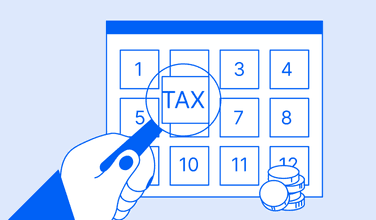A Checklist of What Employers Should Do After Brexit
Your company may have employees with citizenships outside the UK who work for you. How would Brexit impact you as an employer and what can you do to prepare your staff?

As a UK registered company, you may have employees under you with citizenships outside of the UK. How would this impact you as an employer and what can you do to prepare your staff for post-Brexit change?
-
Make Sure Your EU Employees Can Stay in the UK
-
Prepare the New Customs Requirements
-
Apply for a Duty Deferment Account
-
Get to Grips With the New Importing and Exporting Requirements
- Identify the importer of record
- Apply for a UK EORI
- Work out if you need an Import Licence
- Devise your VAT strategy
- Work out who will handle all import declarations
- Prepare UK Intrastat declarations (though only until the end of 2021)
- Remember the new £135 rule
- Determine the Exporter of Record
- Apply for a UK and EU EORI
- Work out whether or not you need an Export Licence
- Decide who’ll be in charge of completing export declarations
- Compile all must-have information
- Submit your EU import customs declarations
- Remember that Intrastat declarations don’t apply
If your employees are not British or Irish citizens, and do not have the permission to enter or remain in the UK indefinitely, they will need to apply to be registered for the UK government’s settlement scheme.
Application is free and they will get a settled or pre-settled status depending on how long they have been living in the UK. If your employees have settled status, they can spend up to 5 years in a row outside the UK without losing their status. If you have pre-settled status, you can spend up to 2 years in a row outside the UK without losing your status.
They must do this by 30th June 2021. However, we recommend getting started right away—after all, nobody enjoys last-minute paperwork.
Where Can I Find Out More?
Tip
If you’re looking for more information, make sure to check out the EU Settlement Scheme: employer toolkit.
If you want to hire employees outside the UK (except from Ireland)
From 1 January 2021, the UK will introduce a points-based immigration system. You will need to be a licensed sponsor to hire eligible employees from outside the UK. Anyone you want to hire from outside the UK, excluding Irish citizens, will need to apply for permission in advance. Further information is available at gov.uk/HiringFromTheEU
As of the 1st January 2021, the UK is officially a separate customs territory from the EU—so there are certain changes to customs procedures as you know them.
To make sure you stay on the right side of the law, follow these simple steps.
Apply for a GB EORI
What is this?
A GB Economic Operator Registration and Identification (GB EORI) is needed for all imports from the EU into the UK, or exports from the UK to the EU.
Do I already have one?
If you’re a VAT-registered business that has traded with the EU in the past, HMRC will have automatically given you a GB EORI.
If you’re not sure whether or not you have one, get in touch with HMRC.
Apply for an EU EORI
What is this?
Similarly, the EU also has its own EORI system—so you’ll need to register for one if your business will be making customs declarations in the EU.
Get a customs intermediary
What is this?
A customs intermediary completes your business’s customs declarations on your behalf. These can be customs agents, Fast Parcel Operators (FPOs), Freight Forwarders (FFs), or customs brokers.
Why spend your precious time dealing with endless paperwork? Hire a customs intermediary and spend more time doing what you love—rather than on tiresome form-filling.
How can I appoint one?
There are plenty of intermediaries out there to pick from. A quick Google search will reveal some potential companies to get in touch with.
What if I want to handle customs declarations myself?
If this is the case, you’ll have to purchase commercial declarations software and register to be put on the National Exporter System (NES).
Once this has been approved, you’ll receive a special ‘badge’ allowing you to use HMRC’s online custom systems.
Note that HMRC are offering a variety of grants to help agents who want to complete customs declarations by themselves.
What is this?
Whenever goods are imported into the UK, certain duties (such as VAT, customs duties, and excise duties) need to be paid to HMRC.
But instead of making individual payments for each consignment that you import, you can instead choose to set up monthly direct debits—to do this, you need to set up a “duty deferment account” (DDA).
Alternatively, VAT-registered businesses can also use postponed VAT accounting. This means that you log the total amount of VAT due (and recoverable) in your annual VAT return, instead of paying on a monthly basis.
Where do I apply?
Head to this GOV.UK link to find out more about the application process.
Importing Requirements
We’ve distilled the new post-Brexit import legislation into 7 easy steps.
Exporting Requirements
Likewise, here are our 7 simple steps for exporting goods from the UK to the EU.
Get Started, Today
Tip
To find out more about how to navigate the new post-Brexit regulations, get in touch with a member of our accounting expert team.







